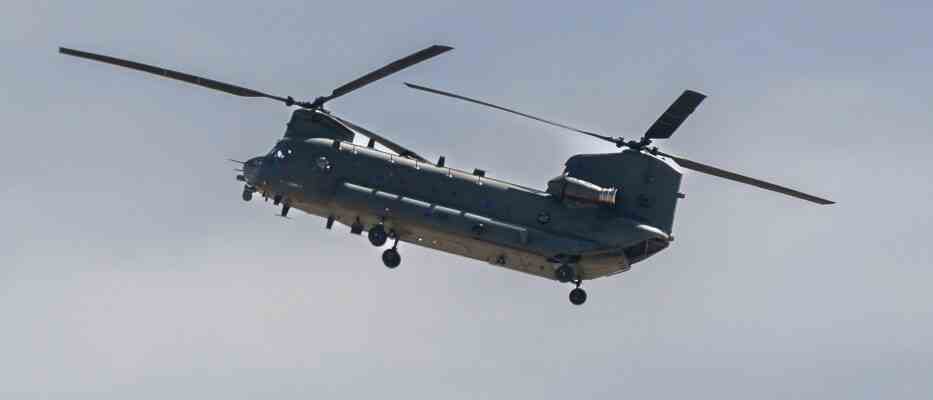It was Sunday, February 27, 2022, when Chancellor Olaf Scholz laid the foundation stone for the largest modernization of the Bundeswehr in the Bundestag. In his government statement, he announced the establishment of a special fund for the troops, 100 billion euros, which should be made available in addition to the budget. “The goal is an efficient, ultra-modern, progressive Bundeswehr that protects us reliably,” said Scholz. On that day, as the Chancellor put it, Germany had arrived at a “turning point in time”. “The world after is no longer the same as the world before.”
It was sentences like these that aroused great expectations in the troupe. The commander of a self-propelled howitzer during an exercise in Lithuania described the mood up until then: “How am I supposed to get my people excited when I have to keep reporting: It’s broken, it’s over. We requested it, but it doesn’t come. The problem is permanent become.” After decades of neglect and unfulfilled promises to ensure adequate equipment, Scholz’s speech at the turn of the century is linked to the hope that something will really change this time – under the impression of the war in Ukraine. “War always brings change, especially for the army,” said the gun commander in Lithuania.
The chiefs of the military department were long considered to be unfortunate figures. Suddenly it’s different
The biggest change is likely to be that politics is being made again with the Bundeswehr. The former Parliamentary Commissioner for the Armed Forces, Hans-Peter Bartels, said Süddeutsche Zeitung: “The military has acquired a new, realistic value. The turn of the century rhetoric dominates.” Bundeswehr and security experts who get involved in the debate are gaining more importance. The offensive FDP politician and chairwoman of the defense committee, Marie-Agnes Strack-Zimmermann, should now have made it onto television more often than Defense Minister Christine Lambrecht from the SPD: The chiefs at the head of the defense department were long considered to be unfortunate figures because in recent years they have never received the money that the troops actually needed.Suddenly things are different.
Even the Greens, with their roots in peace politics, are hardly recognizable. Foreign Minister Annalena Baerbock said in an interview with the FAZ about the successes of the Ukrainian army and military aid from Germany: “Our arms deliveries obviously help very clearly to save human lives. So a foreign policy based on human rights should constantly ask itself how we can help through further deliveries, to liberate even more villages and save lives.”
The rapprochement between the Bundeswehr and the Greens began some time ago. The Bundeswehr Grün association has existed since 2021 and has set itself the goal of promoting “exchange and understanding” between green politics and the interests of Bundeswehr members. At the Green party conference, he had set up a stand that certainly aroused interest. “The fact that their stand was so well received by the members is certainly also due to the turning point. But the Greens had long been on the way to normalizing their relationship with the Bundeswehr,” says Sara Nanni, the Greens’ defense politician. Hard anti-Bundeswehr sentiment is only left in the Left Party. Hans-Peter Bartels, the former military commissioner, who now looks at politics from the outside, says: “Especially the younger generation and the center-left camp in parliament are about to rethink. Suddenly, military defensiveness has positive connotations.”
This has also meant that the backlog of decisions on armaments issues is clearing: after years of debate, it is finally clear which of the two available heavy transport helicopter models the troops should get. Turn 60 by 2030 chinookBought helicopters, these are the helicopters with the distinctive double rotor. As far as the successor to the fighter jets is concerned, the government has opted for F-35Airplanes decided, flyers of the latest generation, which, like the helicopters, come from the USA. Armament for combat drones, the use of which had been the subject of heated debate for years, is now also being purchased.
All of these major projects have one thing in common: it will be years before the weapon systems are fully introduced in the Bundeswehr. With the war in Ukraine not only Germany started to modernize the army. The defense industry’s order books are filling up, and the industry is struggling with delivery problems and a shortage of skilled workers.
As a result, even when it comes to personal equipment, the Bundeswehr is not making as much progress as Minister Lambrecht promised. The special fund to strengthen the Bundeswehr should lead to concrete improvements for the troops within weeks. But the first additional products, such as protective vests and night vision devices, should not arrive in the troops until the turn of the year at the earliest.
The procurement structures in the Bundeswehr have largely remained the same
The procurement structures in the Bundeswehr have largely remained the same. The large authority based in Koblenz, which takes care of purchasing, lacks the specialists, as is also the case outside of the Bundeswehr. In addition, there is a ministerial apparatus that has not really internalized the situation of suddenly having so much money at its disposal, even months after Scholz’s speech. An initial list of projects to be financed from the special fund had to be revised after auditors identified serious shortcomings.
“Since the danger has been imminent since the Ukraine war at the latest, the turning point for the Bundeswehr should be really quick: quick reorganization, quick personnel reinforcement, quick full equipment. But nothing happens quickly,” complains security expert Bartels. “Even ordering larger quantities of ammunition from existing framework agreements is obviously a lengthy main and state action.” Changing times just need – time.

